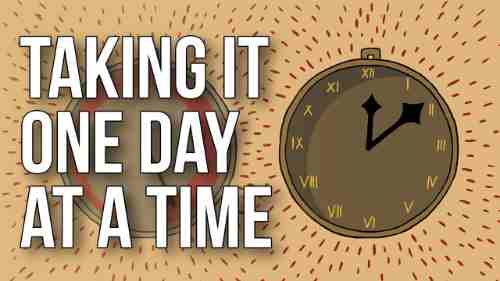If we don’t discover the art of time travel, no one of us can accelerate the pace of time. Naturally, when people say that they’d like to make it through time faster, that’s because they perceive their time more slowly than they’d prefer to. This can be a frustrating experience being in this kind of situation however, there are plenty of methods to take your time and increase your productivity regardless of the situation you’re facing.

How come time is moving slowly?
It’s challenging to find an agreement on such an undefined subject, even though experts have a wealth of theories regarding the reason why time is inconsistent in certain points.
Acceptance: If you’ve spent all day looking at your watch or observing time, the clock appears to be going at a snail’s pace. Check the second hand’s count for a minute, and you’ll be tempted to ask whether a minute’s duration has always been this lengthy. The fact that the time is slower feels it even more difficult.
Disengagement: When you are engaged in something, actively or inactive the brain’s attention is occupied with that particular time. It’s the reason you’re amazed at the amount of time that is gone on a hectic morning. In contrast, if you’re bored and have no work to complete, you’ll be uninterested and more vulnerable to bored.
Expectations: Studies have revealed that it is especially difficult to keep track of time in the event of anticipation for things to come up short like a celebration that’s coming up or an upcoming trip. This is especially true in the case of people who have impulsive tendencies, and who are often unable to wait for events to occur.
Unhappy Feelings: Various emotional states can cause you to see your time moving more slowly. The anxiety of waiting for an appointment is an excellent example of how your mood may increase the number of ticks and ticks. An uneasy time at the workplace can make you feel more tired for the same reason that you’d describe as a difficult day.
How Can You Help Time go by faster?

All experts believe that one of the greatest ways to make it appear more rapid is to put aside the clock. The article published in The Atlantic cited time enthusiast Alan Burdick and psychologist William James for their agreement on this essential idea. James wrote “A day that is full of joy without a pause is believed to be over before we are aware of that it has passed. However, on the other hand, an entire day of waiting, and a nagging need for change will appear to be a short time.”
Shortly, it’s going to be difficult to not look at clocks. There are a lot of them around us. Your smartphone, your watch (if you own one), as well as your computer and even your office’s wall, are probably all screaming at the same all the time to you. Yikes. However, if you’re trying to learn how to accelerate the speed of your time it is the top thing you could achieve.
I suggest removing any timing indicators you can block at any time you can. Put a tiny stick notepad on the area of the screen in which the time will be displayed such as. If you can, make an effort to take a break from watching the clock or thinking about the time that has gone by.
Establish a predictable routine.
Yes, routines can be kind of boring. They’re also boring.
If you’ve established a schedule, it’s easy to sort of shut off your mind and simply go through the routine. It’s a bit of a cliche but it’s certainly not the most effective method of increasing efficiency, enhancing satisfaction, or boosting engagement. However, I’m pretty sure it’ll help make the time pass quicker.
If you’re faced with a challenge it could range from simple to difficult. Certain tasks are too unpredictable that you cannot transform them into routines. Some tasks can even be automated. Take every step you can to make sure that your work is constant, and your day can fly by.
Find flow.
The most effective way to speed up time is to get into fluidity.
In case you’re unfamiliar with the concept of a “flow condition” is a state of mind that occurs when a person is completely absorbed in their task. People feel energized and focused as well as being absorbed by what they’re working on. This is also known as “being completely in the moment.”
If you’re flowing, you’ll never have the desire to even look at your clock. Your mind will be completely absorbed in your work that time is the last thing you think about. The hours can pass without notification.
What can you do to achieve this?
There are several various theories. However, the most common belief is that flowing demands you to discover an ideal balance between interest and tension. It is essential to be active and engaged in the work you’re working on. It is also important to be challenging enough to ensure that you’re not bored but not too much so that you’re unable to relax.
The process is simple If you’re able to do it with a variety of sports. Many people feel more relaxed when playing basketball. Some feel this when cleaning windows, playing video games or even folding origami. If you’re in a bind at work or in school, the best option is to find a way to alter your responsibilities.
Break down time into chunks.
This is in contrast to our original suggestion to not pay on time, however, you could also break the time down into smaller chunks. (You may prefer using time-blocking applications to accomplish this. Check out our list of the most effective time-blocking applications that are available).
What exactly do I mean by “blocks?”
So, you’ll cut the intervals of time into smaller pieces. If you start your work at nine and complain about having to work for 8 hours and then go home at 5, you’ll likely feel exhausted. It’s far simpler to tell yourself you need to do 30 minutes of work for the next meeting or break.
You can change your environment
The routine can be our best good friend. In other cases, it can be our adversary. Today, we are aware of how our work environment affects our productivity and well-being. Therefore, we recommend first reviewing your workspace as well as getting rid of any distracting and cluttered areas.
Another suggestion we have is to change the scene. It’s good to change things up, it’s exciting and energizing. Work from a different space within the home, at a cafe, public library, or outside.
Of course, is if you’re able to flexible work schedule. The results will be that minor changes in your schedule will make your days more interesting and your time go faster.
On “do not disrupt”
Technology has given us infinite benefits. However, it’s presented one of the greatest problems of our times: staying in touch. “Check out the clip Mary shared”, “Haven’t posted in quite a while, tell us your latest activities”.
Each day, our phones are bombarded with messages like these or otherwise, the urge to grab your phone to browse social networks when bored is a great temptation.
The distractions we are exposed to can aid us in maximizing our time working. But, once we begin viewing the same content over and over and realize the time has only been ten minutes, we have a whole day before us. The frustration sets in.
We recommended that you try at all times to stay clear of any distractions, and also to keep yourself from the technology to complete our goal of doing the work we’ve talked about. Here are some tips on how you can stay clear of time-wasting distractions:
Make sure to put your phone and all other devices on mute.
Stop all social media and app notifications;
The phone’s screen should be turned down or keep it far away from your hands.
In all likelihood, when you’re in the office, many of your loved ones and friends are also working. Don’t fret. The vacation pictures will exist when you are back.

keep learning and updating your information
sometimes demotivation may be the consequence of insanity and lack of ability to expand your knowledge. If you don’t keep your knowledge fresh it will make your job more and less demanding and consequently, dull. As a result, the more we’re bored more we are, the faster time goes by.
Thus, you should ensure that you do not become unproductive. Look for opportunities to improve and improve your skills, be it taking a class or attending a conference or even a webinar. You never know, you might even get appointed to a job where the pace at which you move does not matter anymore.
Get rid of looking at the time and help your work time fly by.
The pace of time slows down even when you’re not interested in what you’re working on.
In addition to the strategies we discussed above How else do you accomplish to free yourself from the monotony of your working day? What other ways can you make yourself happier, more active as well as more efficient?
These articles may be helpful. Go through them:
What can you do to speed up your work – to feel more motivated
The bottlenecks to the productivity of remote workers – to solve off-site specific issues
Tips to improve productivity What you should not accomplish in the name of productivity
Time travel is the ultimate day for work
Imagine a typical working day with the tips above and you’ll get some idea of how you can implement them.
The clock strikes 9 AM on a Thursday looking forward to completing the workday so that you can begin your two-week holiday the next day. There’s some lingering hangover and the time has already begun to drag.
The first step is to hide each clock you discover. Shut off your cell phone and hide your watch. put your laptop’s clock in a case. Invisible away from your thoughts.
Before you start, turn on an earful of music or background noise to distract you. Then, switch on the blue LED lamp in the workspace.
Start working on your agenda to complete your day. You will likely have routine activities, such as responding to messages, sending daily updates, and so on. These can complete first.
The next step is to work on a tougher, more painful task that’s to deal with. If the task is more difficult cut it into smaller parts, and then work on just one part at a time.
When you have completed each task on your list or in timed intervals then reward yourself. Take a walk and get up. Choose a person to speak with!
When you’ve cleared the tough tasks and you’re ready to move on to simpler tasks that allow you to work with others or engage in a casual chat while working.
Enjoy your day without stress, get up and go to your time off!
It’s not difficult to integrate all these tips into your daily routine. Even if you take a few of them and you’ll quickly realize that the most effective method to get rid of the sluggish passage of time is to put off your work and become lost within it!